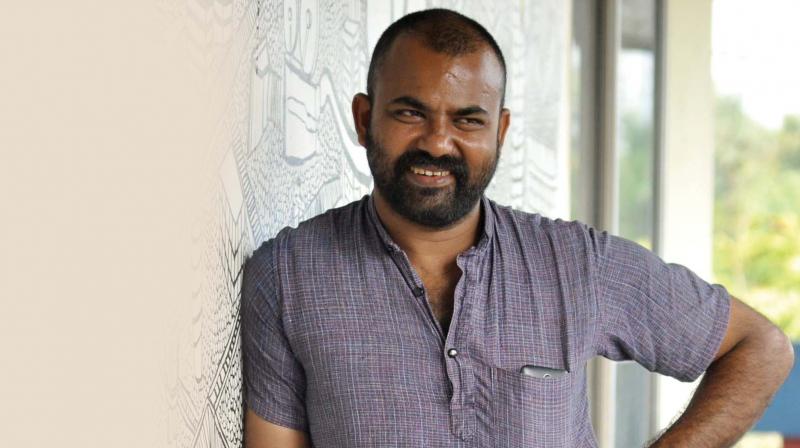Kiss of commotion

To kiss in the open or behind the doors is a matter of personal choice. But when one of the finest of the emotions turns out to be a cause for commotion, some serious thoughts are the need of the hour. Prathap Joseph would say he wants that to be conveyed through the medium of cinema and his latest movie, Randuper Chumbikkumbol takes a position between the high doors of moral policing and an introspection that should start from every individual and their family.
“Pent up frustration in human minds get a quick let out when they turn aggressive at certain sights and occurrences. It comes from nowhere, but from society itself that slaps morality codes for everyone, demanding all to remain within the confines. To fit into it, many therefore sacrifice their choices and preferences. Superficially, they appear satisfied with the way society goes,” says Prathap.
Randuper Chumbikkumbol, in its tail end, appends a few footage of certain protests erupted out of the name of moral policing like Kiss of Love, Hug of Love and vandalising of a cafe in Kozhikode. Otherwise, its characters, counting just seven, are about families and their deep-set, yet hidden feelings of affection towards someone outside its ambit. A respectable family – trio of a father, mom and daughter – falls into the definition Prathap has said before. For the sake of existence, they are in a situation to push their deepest sentiments to dark and adjust to the accepted code of conduct.
“They lie to exist. That’s all about it. No one is glorified or being favoured. I also want my movie to document and record the most controversial Kiss of Love for posterity,” clears Prathap, who is the DoP of the controversial movie S Durga.
The one hour and 10 minute film is partly an adaptation of a short story by M.T. Radhika. Spanning three lengthy shots, the film was an experiment of sorts.
“Considering the nature of its plot, the movie must be shot in some places where people seek privacy. Crowd management was a huge task before us. The actors rehearsed a lot,” he says.
Under the banner of Minimal Cinema, the movie is a free-for-all, screened at selected venues across the state. The viewers can offer donations, but that is up to them. “Finally, the film should reach as many people as possible. It is an experiment on how they would accept a movie when it comes to them for free,” he reasons.

